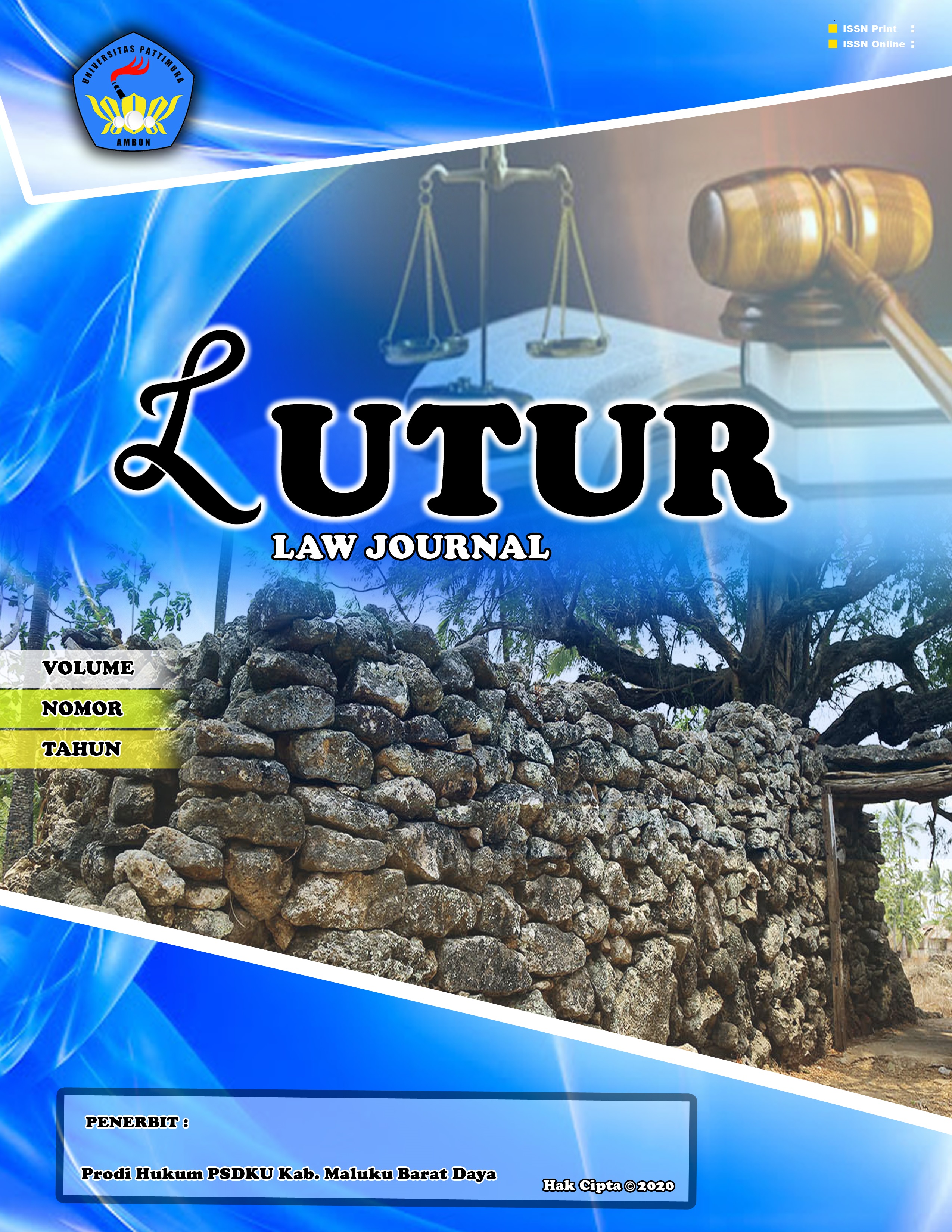Hubungan Antara Tindak Pidana Korupsi Dan Kerugian Ekonomi Negara
Abstract
Corruption in the public sector harms the economy and public welfare, especially in the management of the state budget and basic services. Misuse of public funds hampers the development of infrastructure, education, health, and creates sharp social inequalities. Corruption also undermines public trust in government, lowers productivity and the country's competitiveness, which slows economic growth and increases poverty. In economic criminal law, corruption is specifically regulated in Law No. 31 of 1999. This research aims to examine the relationship between the crime of corruption and its impact on state economic losses from the perspective of economic criminal law. This research uses normative juridical method with statute approach and literature data collection. Data sources include primary legal materials (1945 Constitution, Law No. 31/1999, Emergency Law No. 7/1955), secondary (journals, books, scientific works), and tertiary (news articles, encyclopedia). The analysis was conducted using content analysis. Corruption has a significant impact on state economic losses through abuse of power, bribery, embezzlement and collusion. Corruption inhibits investment, slows economic growth, increases unemployment, and triggers poverty. Law No. 31/1999 regulates sanctions for actions that harm the state's finances and economy Its far-reaching impacts include budget wastage, poor quality of public services, and inefficient use of resources. Distrust in government due to corruption also discourages foreign investment. Eradicating corruption is therefore key to promoting sustainable development and improving the country's overall economy.
Downloads
References
Jurnal Artikel
Rizky, None Muchamad Catur, None Didit Darmawan, None Suwito Suwito, Non Rio Saputra, and None Novritsar Hasitongan Pakpahan. “Upaya Pemberantasan Korupsi: Tantangan Dan Langkah-Langkah Konkret.” Jurnal Manuhara Pusat Penelitian Ilmu Manajemen Dan Bisnis 1, no. 4 2023.
Depri Liber Sonata, 2014, Metode Penelitian Hukum Normatif Dan Empiris: Karakteristik Khas Dari Metode Meneliti Hukum, Fiat Justisia Jurnal Ilmu Hukum Volume 8 No. 1
Faisal Lutfi, Akhmad, dkk. "Dampak Korupsi Terhadap Pertumbuhan Ekonomi (Studi Kasus 4 Negara di ASEAN)." E-Journal Ekonomi Bisnis dan Akuntansi 7, no. 1 (2020): 30-35.
Buku
Bahder Johan Nasution, 2008, Penelitian Hukum, Mandar Maju, Bandung, 2008.
Mestika Zed, 2008, Metode Penelitian Kepustakaan, Yayasan Obor Indonesia, Jakarta, 2008.
Mohammad Ikhsan, "Mengukur Biaya Ekonomi Akibat Korupsi di Indonesia." In Mencuri Uang Rakyat, Dari Puncak sampai Dasar, edited by Hamid Basyaib, 120-140. Jakarta: Partnership, 2002.
Soerjono Soekanto dan Sri Mahmudji, 2003, Penelitian Hukum Normatif, Suatu Tinjauan Singkat, Raja Grafindo Persada, Jakarta, 2003.
Skripsi, Tesis, Distertasi, Online/World Wide Web dan Lain-Lain
Mauro, Paolo. "The Persistence of Corruption and Slow Economic Growth." IMF Working Paper, 2005.
Copyright (c) 2024 Harly Clifford Jonas Salmon (Author)

This work is licensed under a Creative Commons Attribution-NonCommercial 4.0 International License.
Authors who publish their manuscripts in this Journal agree to the following conditions:
- The copyright in each article belongs to the author, as well as the right to patent.
- Authors are able to enter into separate, additional contractual arrangements for the non-exclusive distribution of the journal's published version of the work (e.g., post it to an institutional repository or publish it in a book), with an acknowledgment of its initial publication in this journal.
- Authors are permitted and encouraged to post their work online (e.g., in institutional repositories or on their website) prior to and during the submission process, as it can lead to productive exchanges, as well as earlier and greater citation of published work.
- Authors have the right to self-archiving of the article (Author Self-Archiving Policy)














